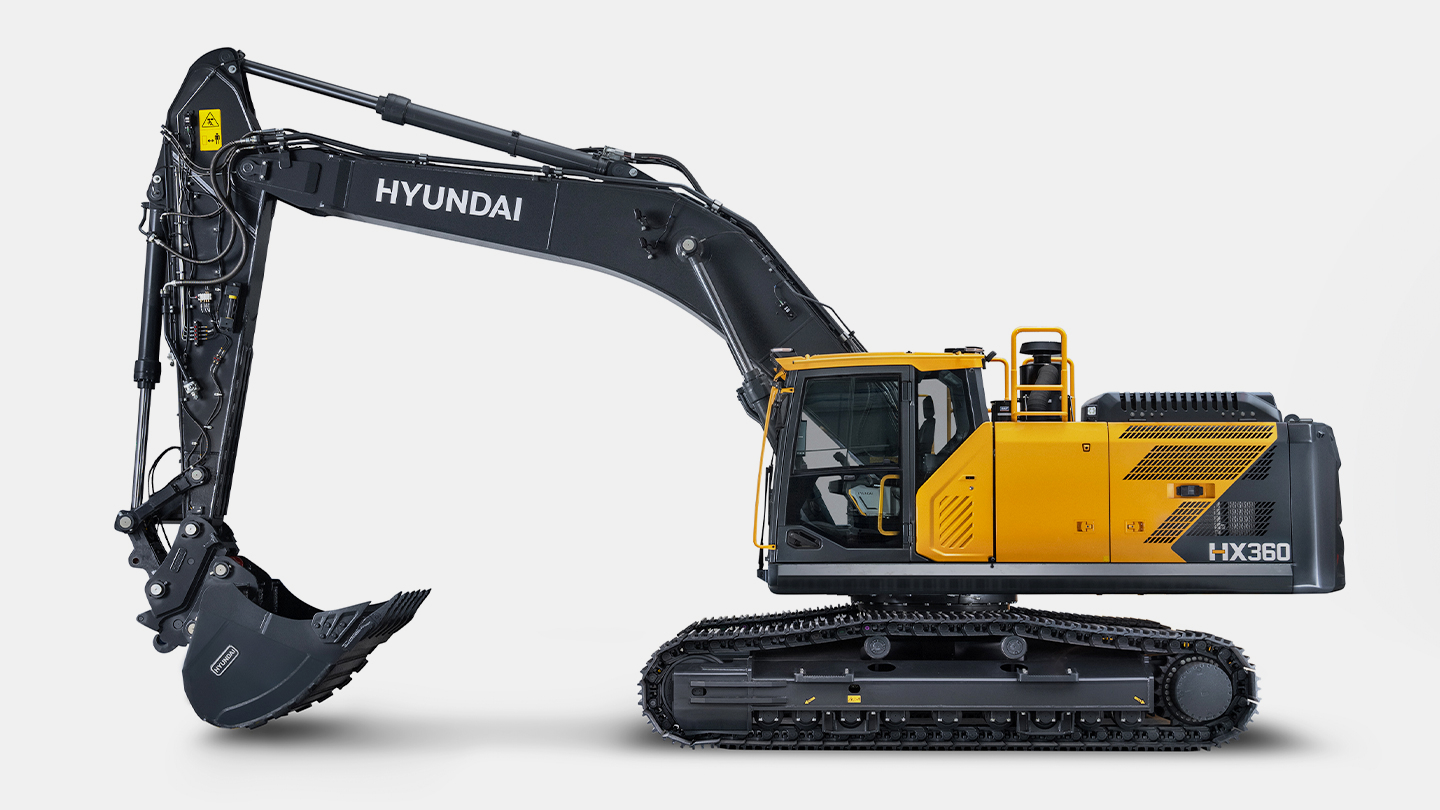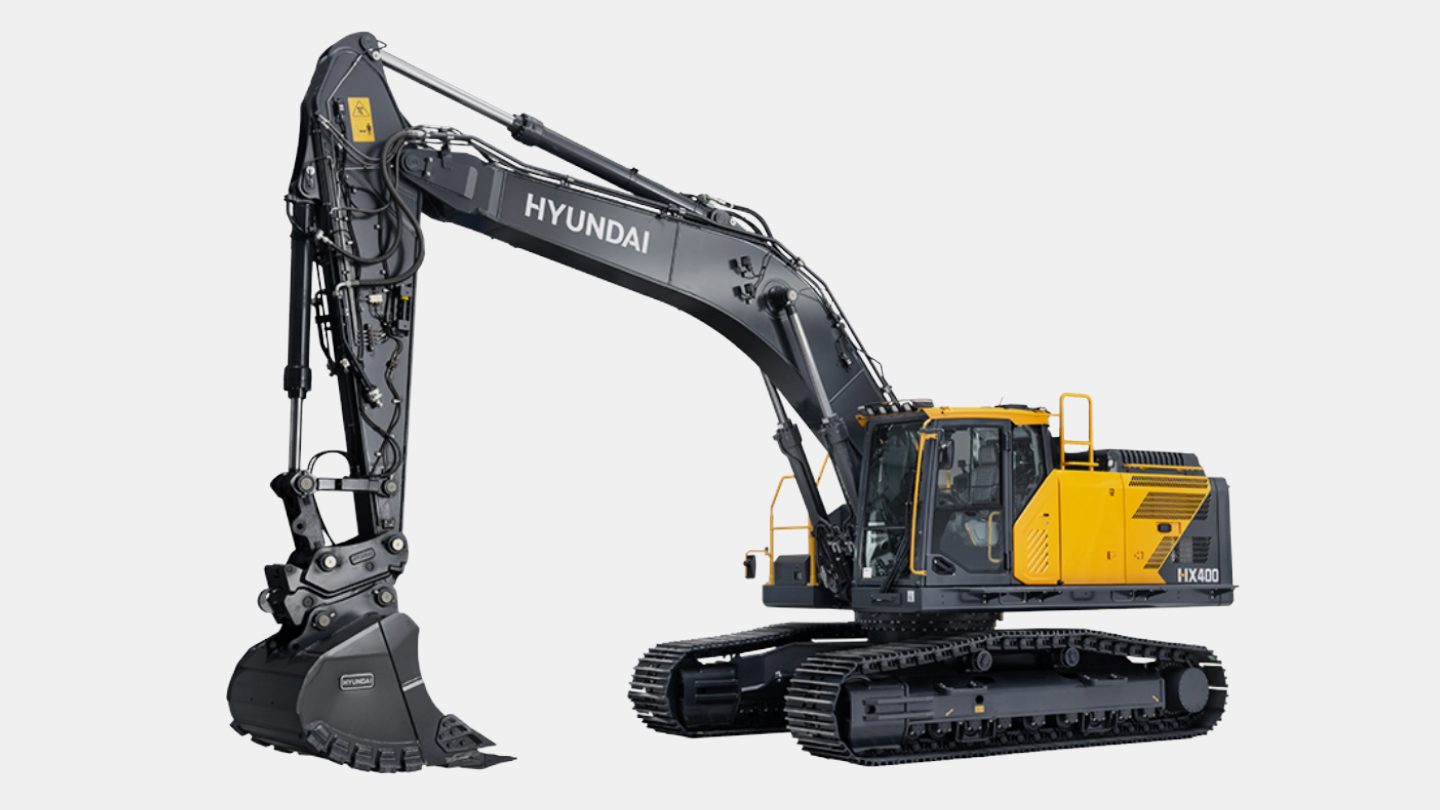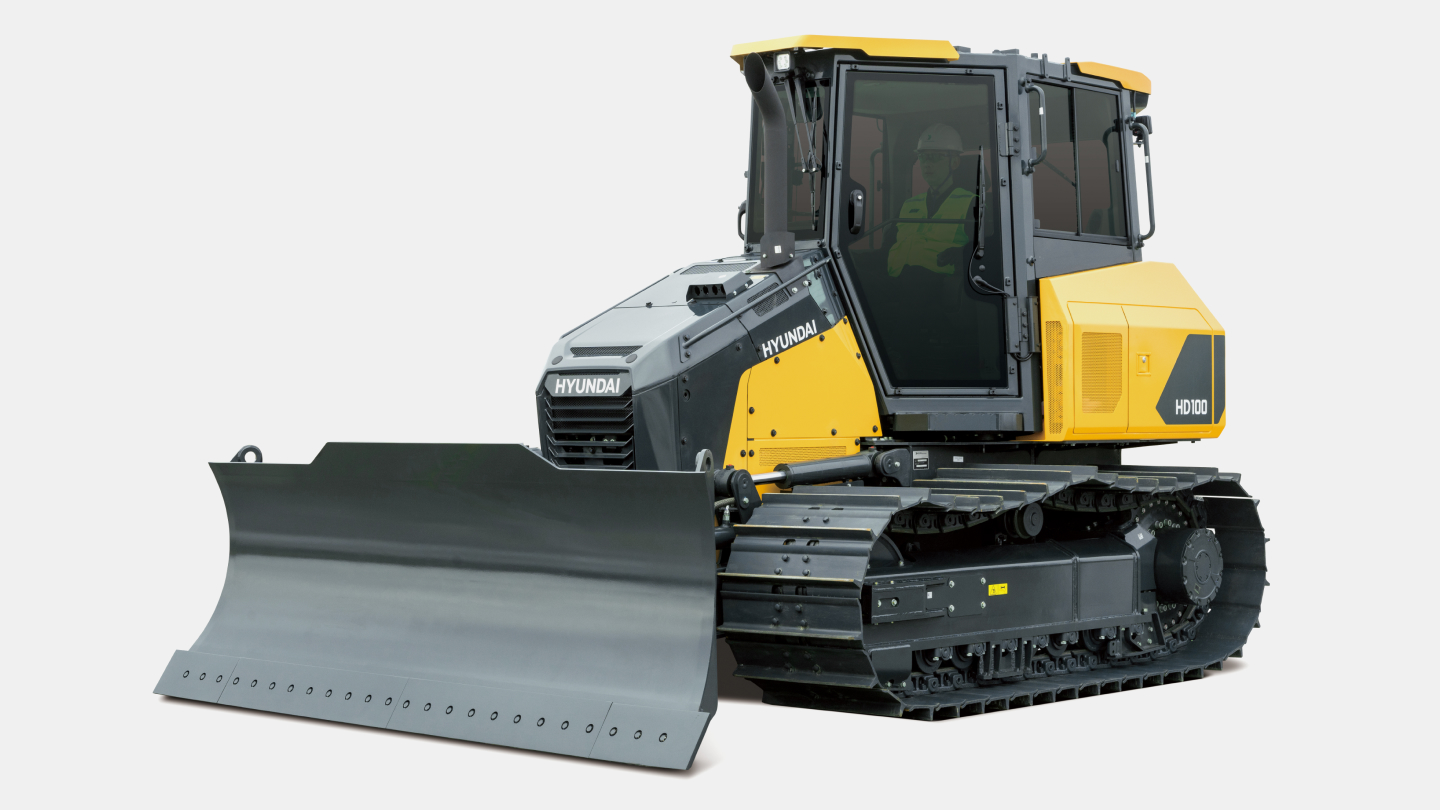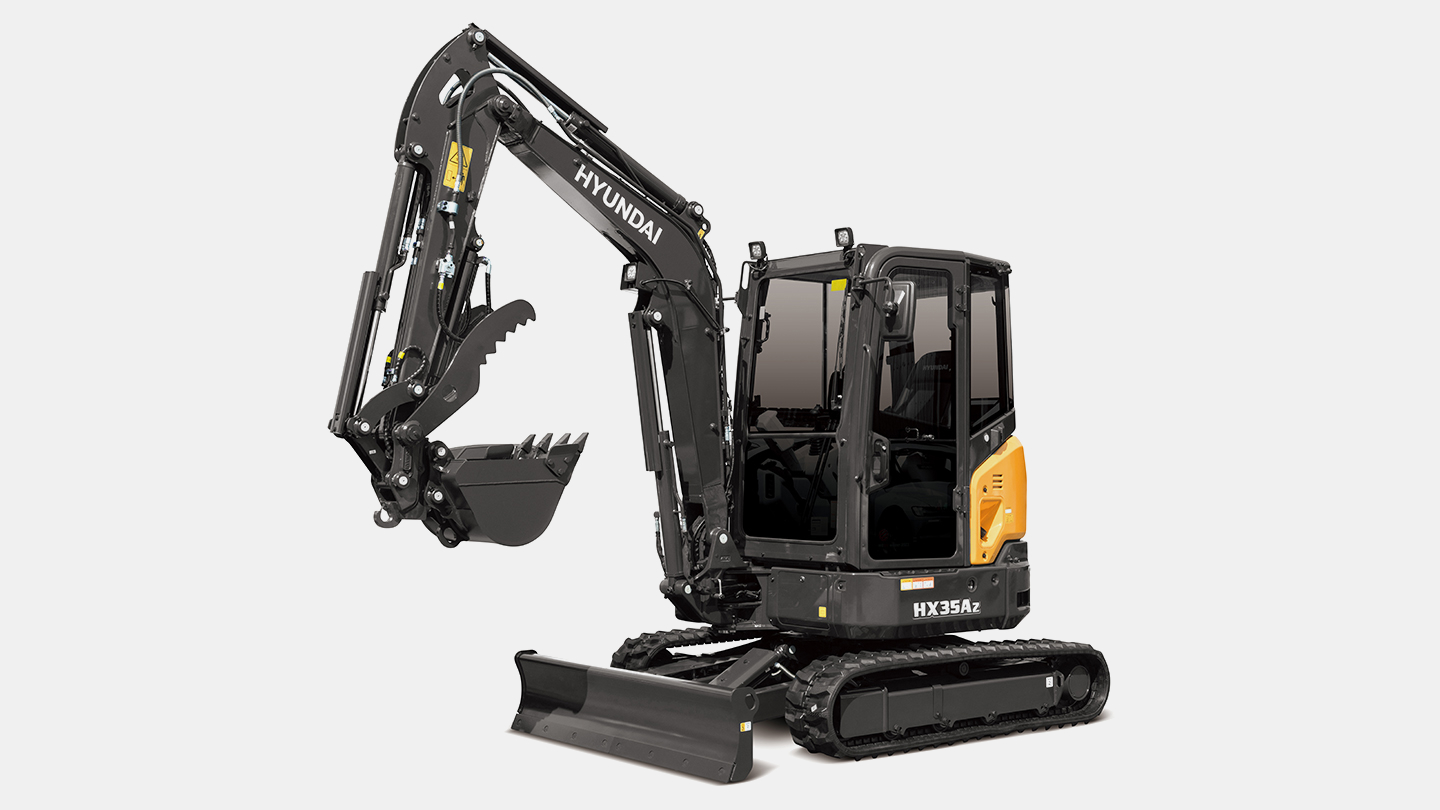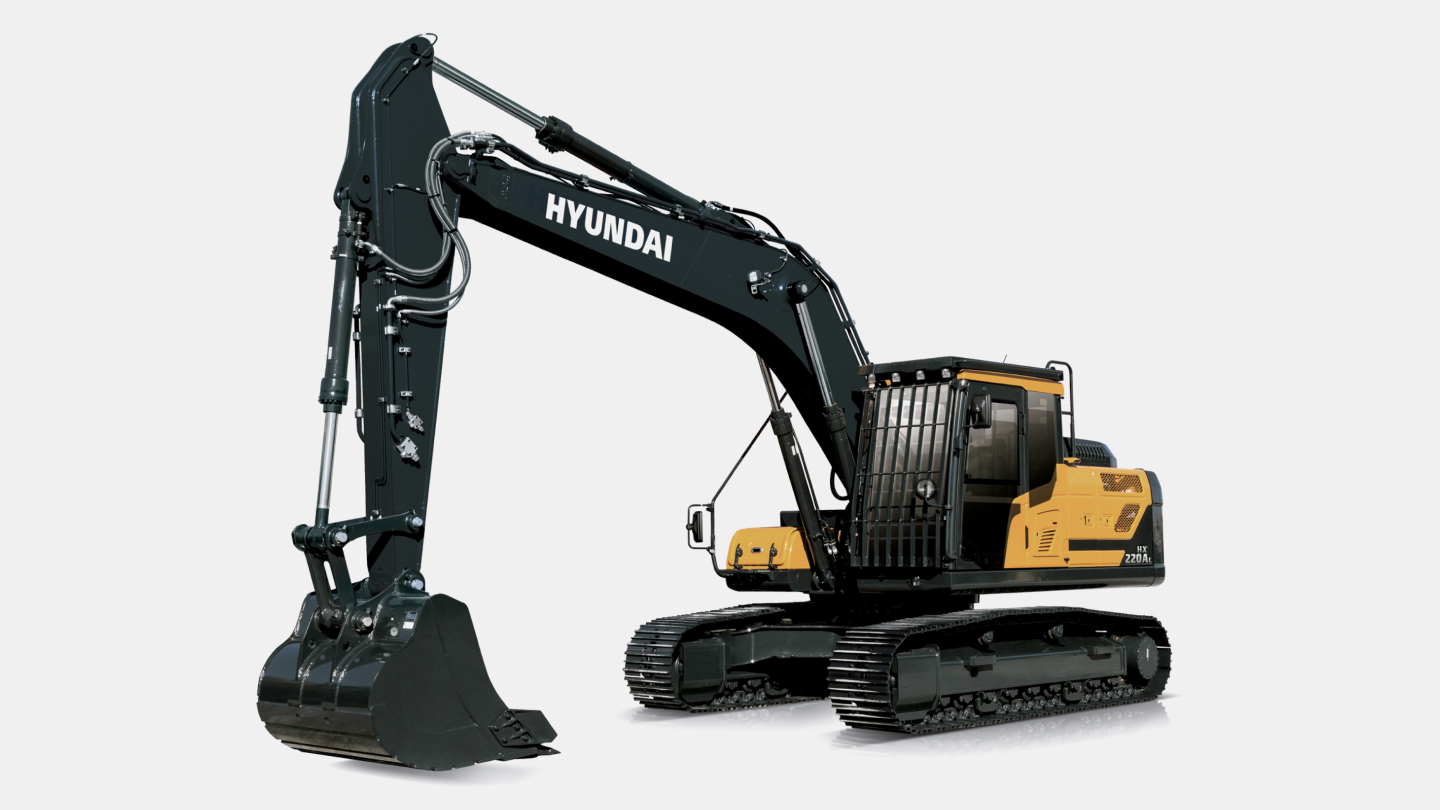HD Hyundai Construction Equipment's mobile website is optimized for portrait (vertical) view.
HCE ISSUE
Hyundai spearheads innovation of construction equipment
2021-08-01
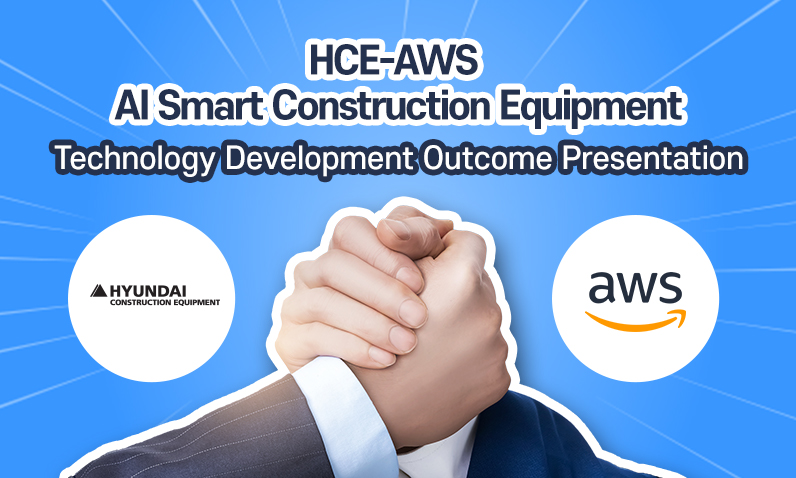
At the site of announcing performance in "AI Smart Construction Equipment" area!
Hyundai spearheads innovation of construction equipment by developing AI Smart Construction Equipment
Maximizing equipment operation time with AI-enabled failure diagnostics, representing the first step toward AI smart construction equipment
HCE and AWS announced the "AI Technology Cooperation Outcome Presentation" on May 17th to unveil an AI-enabled solution to diagnose failure in construction equipment. The solution is expected to drastically reduce the downtime of construction equipment (suspended operations time).
The AI-enabled construction equipment failure diagnostics technology developed by HCE in collaboration with AWS plays a pivotal role in the smart construction roadmap built around AI smart construction equipment, facilitating maintenance service with remote failure diagnostics to significantly enhance the durability, lifecycle and safety of the equipment.
The two companies adopted AIoT modules to harness remote data. Using AIoT technology that combines AI and IoT, HCE collects operating status data from numerous pieces of equipment running on IoT platforms and applies the unsupervised learning technique (a machine learning technique that finds patterns and features of specific datasets) to massive data collected in such a way. As a result, HCE secures data on normal status. These normal status data are fed to AI model learning operations to develop a technique that can detect anomaly out of the normal status range.
The AI-enabled anomaly detection solution jointly developed by HCE and AWS helps effectively responding to potential failure issues in early stage which were difficult to detect with legacy solutions. It prevents greater accidents or operational downtime.
To that end, cloud technology is used in accumulating failure data. Cloud is essential in gathering massive data and upgrading AI performance. To develop an AI solution that can distinguish the types of equipment failures, identify the root causes of such failures, and predict future failures, HCE is operating machine learning training by using a variety of failure diagnostics data on cloud platform.
During the presentation, HCE showcased an AI model that detects failures in hydraulic components. The AI model was trained based on the data of normal hydraulic operations. HCE trained the AI model using idling test data in various modes for technology demonstration, and mounted the AI model on applicable equipment as an AIoT module. During the technology demonstration proceeded in collaboration with Yongin Technology Innovation Center, the AIoT module detected irregular pump regulator pressure patterns in equipment and transferred the data to a monitoring system over an LTE network.
Subsequently, HCE will further upgrade the AIoT cloud service to provide optimum power mode, protection of workers and pedestrians, voice recognition and remote control based smart interface, autonomous work, and predictive maintenance features.
During the event, Managing Director Pan-young Kim at HCE said about the business model of AI-enabled failure diagnostics, “We expect to combine AIoT services with separate offline services to improve customer's equipment uptime after the free product warranty period. In addition, we will shift to a business model that offers not only physical equipment but also operational uptime time services.”
[Interview with Senior Managing Director Young-cheol Youn]
1. Why did you choose ‘AI failure diagnostics’ as the first smart service unveiled to customers?
Quality, performance and durability of construction equipment, having been regarded as determining factors in customers’ purchase decision now simply pass for very basic expectations. Customers currently require ‘prompt and correct maintenance’ that ensures that failures found in equipment are addressed at once and correctly, and they regard it as a critical point when purchasing equipment.
Maintenance service enabled by IoT and AI technologies will improve service quality by ensuring prompt maintenance even in remote tough sites hardly accessible by service engineers. For such reason, HCE is preemptively developing AI-enabled failure diagnostics service, expecting that a product incorporated with such service will see thrilled responses among customers.
2. Please, tell us about your plan to commercialize the AI-enabled failure diagnostics service.
We plan to commercialize anomaly detection technology (Phase 1) by 2023 and failure identification and root cause analysis technology (Phase 2) by 2025 in a bid to allow customers to benefit from the ever-advancing AI-enabled failure diagnostics technology.
3. Please, introduce the roadmap of smart construction platform technology development.
Vowing to become a smart construction cloud solution provider by 2025, HCE is incorporating intelligent and autonomous features into its equipment and collaborating on technology development with tech companies well versed in design and integrated maintenance of earthwork site. We plan to unveil cloud-based smart design, construction and integrated maintenance services.
[Interview with Managing Director Pan-young Kim]
1. What benefits will AI-enabled failure diagnostics bring to customer’s business?
Failure in equipment is likely to result in downtime, and the AI-enabled anomaly detection service will enable service engineers to be deployed in advance on site to prevent equipment failure and downtime. To customers, ‘operating time’, namely, ‘how long equipment can be operated without stoppage’, is almost as critical as their revenue. From that perspective, AI-enabled anomaly detection can deliver innovative value to customers.
2. What is the blueprint of the smart construction platform?
The future of construction equipment hinges upon two pillars: ‘incorporation of intelligence and autonomy’; and ‘AI failure response’. Intelligence and autonomy can be understood in the context of autonomous driving technology recently rising in the automotive industry. 1 - 5 autonomous driving levels will be applied to construction equipment, too. Autonomous level 2 is incorporated into the autonomous construction equipment of HCE for now, with autonomous level 3 products that can optimize fuel consumption in power mode (high-output mode) being planned to be launched.
In terms of the 2nd pillar, that is, ‘AI failure response’, it consists of three stages ― anomaly detection, failure identification and root cause analysis, and predictive maintenance. Anomaly detection technology can detect anomaly mode that does not raise a significant threat to equipment operation and facilitate maintenance as quickly as possible. Failure identification and root cause analysis technology can clearly identify causes of failures and broken components. Predictive maintenance technology can ensure that the failure occurrence probability of equipment can be forecasted accurately in advance.
3. HCE’s vision to become a construction and logistics solution provider
HCE will develop smart technologies in both pillars defining the future of construction equipment, namely, ‘incorporation of intelligence and autonomy’ and ‘AI-enabled failure response' and apply such technologies to services. Furthermore, in line with the industry-wide trends of adopting autonomous and electric-powered solutions, HCE will become a green company committed to ‘eco-friendly electric power platforms’. As ‘Autonomous Electric Vehicles (A-EVs)’ will come closer to the general public in a matter of several years, HCE will prepare in advance for the future when electric-powered autonomously-operated construction equipment will be the norm.
▲ The event opened with a welcome speech by Senior Managing Director Young-cheol Youn of HCE.
▲ Managing Director Pan-young Kim, head of HCE’s Development Technology Center, presented HCE’s future technology innovation strategy and plans to develop a connected smart construction equipment and service lineup that will maximize customer values based on cutting-edge infrastructure provided by AWS.
▲ Senior Researcher Kye-hyeon Choi of HCE presented the outcomes achieved so far in collaboration with AWS on AI technology development.
